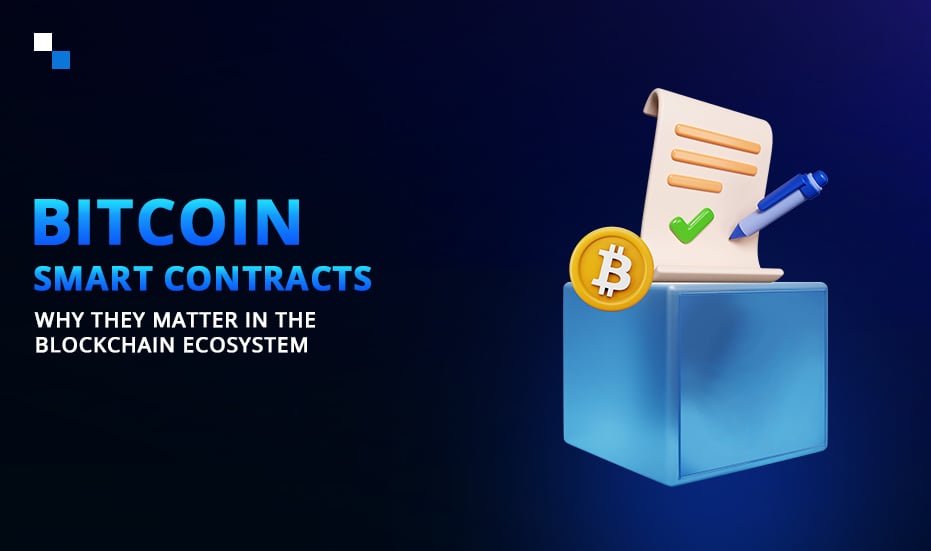
Build Your Fortune With NFT Marketplace Website Developer in 2023
December 23, 2022
How Securitization Can Benefit from Blockchain Technology in 2023?
December 23, 2022While avoiding the friction of the current lending architecture, blockchain technology and its application gave us access to a massive network of peer-to-peer funding. Factoring Solution with Blockchain Technology is the talk of the hour. The practice of leveraging a company’s outstanding commercial receivables to obtain immediate cash is known as invoice factoring. In return for instant access to the majority of the total invoice balance, it enables businesses to “sell” their outstanding invoices to a third party.
Invoice Factoring with Blockchain gets the opportunity to grow their business by resolving their urgent cash-flow issues, which benefits the enterprises. The distributed processing nodes that miners use house the blockchain ledgers. As a result, each node has a full copy of the database. This makes it very challenging for anyone to exploit technology fraudulently.
Although several nations are quickly implementing standardised electronic invoicing, none have even come close to having the infrastructure needed to conduct invoice-backed financing in an automated and simplified manner or to allow for the simplification of cross-border operations. Distributed ledgers play a crucial role in invoice factoring services. Get more details!
Invoice Factoring Services: A Clear Lookout
Companies frequently require short-term financing. It can take between 30 and 90 days for these invoices to be paid by their clients, and they might not be able to wait that long. Nevertheless, they have pending invoices that will provide liquidity. Fraud is one of the major dangers in invoice finance. The validity of an invoice, the authority a certain user has to complete a transaction or even the possibility of impersonation is frequently worrying for buyers. In other instances, the financiers might not have been informed that the seller repeatedly financed the invoice.
Selling these invoices at a loss and invoice factoring with Blockchain is one solution to this liquidity issue. They acquire capital right away while losing a tiny portion of the profit by doing this. Since he purchased it at a reduced cost, when the debtor pays the invoice, both the lender and the new owner will profit (the client for which the invoice has been issued). Everyone benefits if the debtor pays the invoice in the end. That’s pretty much it. The general idea is that businesses get to sell their invoices and obtain cash flow rapidly. Factoring Solution with Blockchain Technology is a little more complicated and can take other forms.
Current Problems with Invoice Factoring on Blockchain
Although it makes perfect theoretical sense, this model has numerous shortcomings in the modern commercial environment. Bills could be inflated, fraudulent, or fake. Invoice factoring on blockchain may occasionally be forwarded to two different invoice factoring businesses. These occurrences are more often than you might realise and occasionally involve significant magnitude.
Although there are procedures in place to guard against these events, they are exceedingly labour- and money-intensive and ultimately ineffective. For the majority of lenders, it is not even worthwhile to bother with minor bills due to the complexity of invoice verification. Due diligence on the part of the invoice seller increases the cost and lengthens the time it takes to get payment, which is especially discouraging to small firms. When the invoice is paid in full by the consumers, with fewer costs, businesses return the reserve amount with Factoring Solution with Blockchain Technology. They provide access to roughly 80% to 90% of the invoice value within a few days.
Heavy manual documentation- The entire invoice finance process, from raising an invoice to submitting purchase orders and evidence of delivery, requires manual documentation. Clients find the process to be tiresome as a result. Additionally, information loss is a common snag in the audit process. Manually saving documentation to client discs uses server space.
Time-consuming process- There is no instantaneous method of instantly authorising invoices due to the tiresome human process of the transaction and lack of automation. When certain conditions are met, smart contracts can be set up to release money.
Potential for fraud-Since just a random sample of invoices is currently checked against the paper trail that supports them, there is still room for fake invoices to be funded. Purchase orders, invoices, and delivery proofs will be published to the blockchain and validated by numerous users thanks to the end-to-end trustworthy verification created by the blockchain.
Lack of a system for tracking- At the moment, the participants, client-end debtor, and bank are unable to monitor the transaction in real time. Only when communication is open and transparent, then the status of the invoice factoring services taken worthwhile.
Factoring Solution with Blockchain Technology
Blockchain technology is changing the financial landscape because it makes it possible for transactions to be shared efficiently, securely, and transparently. By directly connecting potential investors and businesses in a completely transparent environment, blockchain will make it possible for transactions to be executed in a peer-to-peer method. Invoice factoring on blockchain ensures NFTs are immutable and unique and securely contain information like the invoice’s original originator. Now tokens are protected from tampering and are only accessible to those who have the necessary permissions.
A “smart contract” governs how these tokens will be paid out. Digital contracts known as “smart contracts” are pre-programmed to act in a certain way and are kept on a blockchain. These contracts can also be configured to release payments to the business after reaching a predetermined amount. Then, businesses can exchange their invoices on a distributed open ledger platform that records the parties’ interactions. Some blockchain-based invoice factoring services connect investors and businesses, offering to carry out due diligence on their behalf by assigning them creditworthiness.
- Automated documentation – By using Blockchain to automate the invoice discounting process, paper-based transactions are eliminated.
- Real-time transaction- This settlement enables the transfer of invoices to the blockchain network, the activation of smart contract rules, which results in the real-time discounting of bills and the disbursement of payments to the client.
- Live tracking – With invoice factoring with Blockchain, all relevant parties are able to see and confirm the operations. There is only one source of truth, and no transaction can be completed unless all parties involved consent to its authentication.
- Fraud Proof – All stakeholders can view and verify procedures thanks to Factoring Solution with Blockchain Technology, the process is impervious to fraud.
Conclusion
These new initiatives look wonderful on paper, but none of them is currently completely operational. Invoice factoring with Blockchain is yet unclear how well they will perform. Still, they are performing something good! Factoring Solution with Blockchain Technology allows parties to see the transaction in real time and from a common point of view. Every transaction is logged on the blockchain, it can be utilised in conjunction with artificial intelligence to identify end debtor payment patterns and hazards. In addition to working with authorities and obtaining a money transmitter licence in the nations where they will operate, invoice factoring services persuade companies to abandon their outdated practices and adopt a technology that is still in its infancy and difficult to comprehend.
Let’s keep an eye on invoice factoring dApps since they will be among the first to demonstrate the usage of blockchain in the commercial world. Contact the Antier team and learn more about this!



